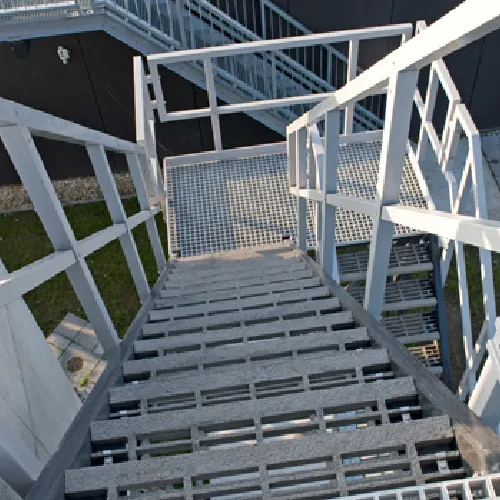loading...
- No. 9, Xingyuan South Street, Dongwaihuan Road, Zaoqiang County, Hengshui, Hebei, China
- admin@zjcomposites.com
- +86 15097380338
- Welcome to visit our website!
Best Water Softeners and Filtration Systems for Cleaner, Softer Water at Home
Understanding Water Softeners and Filtration Systems Benefits and Considerations
Water is an essential resource for life, but the quality of water can significantly affect our health, household appliances, and overall quality of living. In many areas, water contains high levels of hardness minerals like calcium and magnesium, as well as contaminants that can pose risks to health and household infrastructure. This has led to the increasing popularity of water softeners and filtration systems. In this article, we will explore what these systems are, how they work, their benefits, and considerations for installation.
What are Water Softeners?
Water softeners are devices designed to remove hardness minerals from water. Hard water can cause various problems, such as limescale buildup in pipes and appliances, reduced soap effectiveness, and even skin irritation. Water softeners typically operate using a process called ion exchange, where hard minerals are exchanged for sodium ions. This process helps in transforming hard water into soft water, making it more suitable for bathing, cooking, and use in appliances.
What are Water Filtration Systems?
Water filtration systems, on the other hand, focus on removing impurities, contaminants, and chemicals from water. Depending on the filtration method, these systems can address a variety of concerns, from chlorine taste and odor to harmful pollutants like lead and bacteria. Common types of filtration systems include activated carbon filters, reverse osmosis systems, and whole-house filtration units, each designed to target specific water quality issues.
Benefits of Water Softeners
1. Prolonged Appliance Life By reducing limescale buildup, soft water helps in prolonging the lifespan of appliances such as dishwashers, washing machines, and water heaters.
2. Enhanced Soap Efficiency Soft water allows soaps and detergents to lather better and work more effectively, ultimately reducing the amount of soap needed.
3. Improved Skin and Hair Health Many users report softer skin and shinier hair after switching to soft water, as it reduces the irritation often caused by hard water minerals.
4. Cleaner Dishes and Clothes Soft water prevents mineral deposits on dishes and laundry, leading to cleaner results and a reduced need for re-washing.
Benefits of Water Filtration Systems
1. Better Taste and Odor Filtration systems can significantly improve the taste and smell of drinking water by removing chlorine, sediment, and other contaminants.
water softener and filter system

3. Fewer Chemicals Many filtration systems reduce reliance on bottled water, thus decreasing exposure to plastic and environmental waste.
4. Versatility Filtration systems can be customized to your specific needs, whether it’s for drinking water only or for the whole house.
Considerations Before Installation
Before investing in a water softener or filtration system, there are several factors to consider
1. Water Testing Determine the specific contaminants or hardness levels in your water by conducting a water test. This information is crucial for selecting the right system.
2. System Type Decide whether a water softener, filtration system, or both are suitable for your needs. Some households may benefit from a comprehensive solution that addresses both hardness and contaminants.
3. Maintenance Requirements Both systems require regular maintenance and monitoring. Ensure you understand the upkeep, such as periodic salt refills for softeners and filter replacements for filtration systems.
4. Installation Costs Evaluate the initial installation costs as well as potential ongoing costs, such as replacement filters or salt for the softener.
5. Space Availability Consider where you will install the system. Some systems, especially whole-house filters, may require significant space.
Conclusion
Investing in a water softener and filtration system can greatly enhance water quality and overall well-being at home. By understanding how these systems work and considering the specific needs of your household, you can make informed decisions to improve your water quality. With the right systems in place, you not only enhance your water experience but also protect your health and the longevity of your home's plumbing and appliances. As water quality continues to be a pressing issue, solutions like these are essential for creating a healthier living environment.
-
The Rise of FRP Profiles: Strong, Lightweight, and Built to LastNewsJul.14,2025
-
SMC Panel Tanks: A Modern Water Storage Solution for All EnvironmentsNewsJul.14,2025
-
GRP Grating: A Modern Solution for Safe and Durable Access SystemsNewsJul.14,2025
-
Galvanized Steel Water Tanks: Durable, Reliable, and Ready for UseNewsJul.14,2025
-
FRP Mini Mesh Grating: The Safer, Smarter Flooring SolutionNewsJul.14,2025
-
Exploring FRP Vessels: Durable Solutions for Modern Fluid HandlingNewsJul.14,2025
-
GRP Structures: The Future of Lightweight, High-Performance EngineeringNewsJun.20,2025
